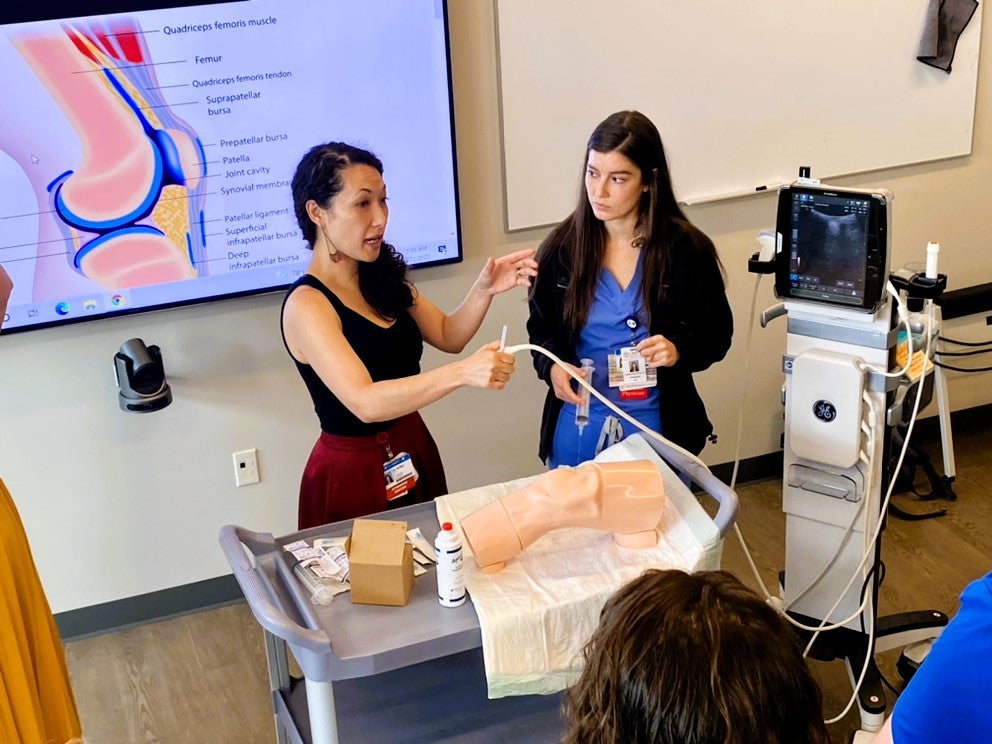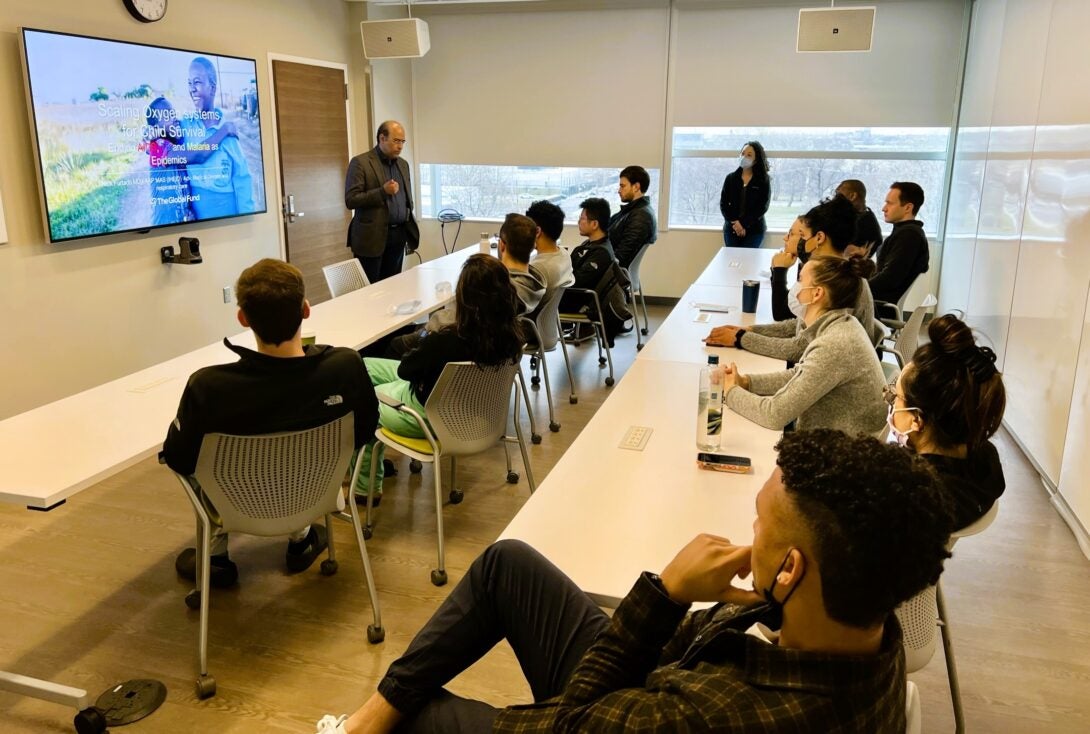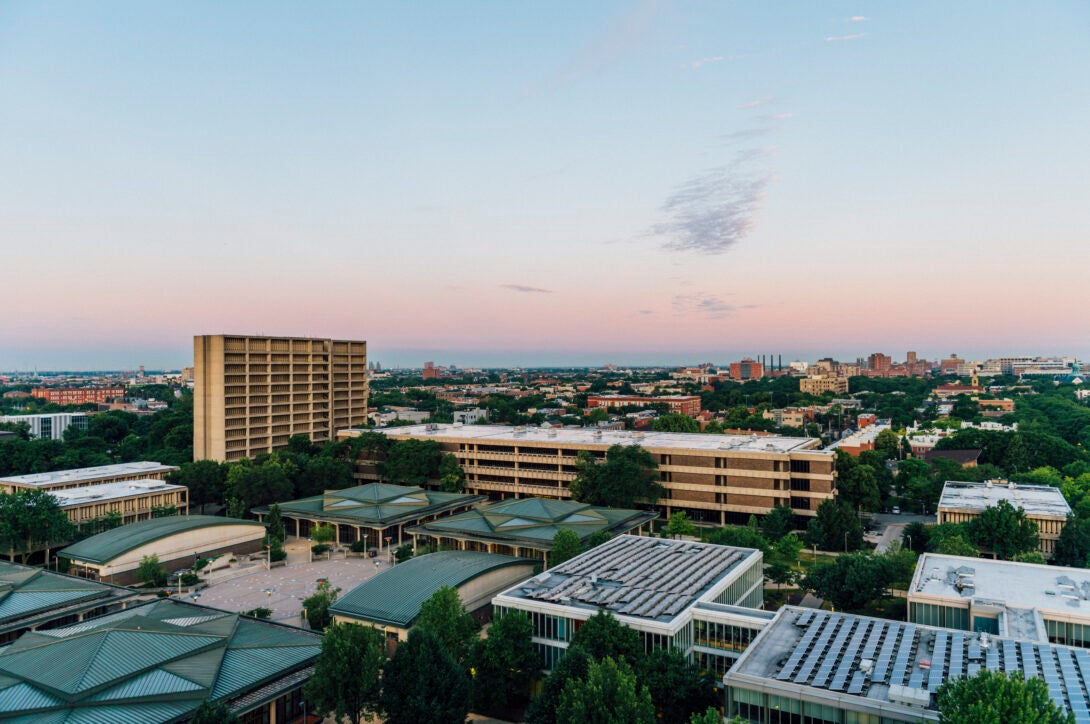Emergency Medicine Curriculum
Our three-year Emergency Medicine training program is built around thirteen 4-week rotations annually.
During each block, residents rotate through one of our four hospital sites. Understanding that education should be personalized, we do not use rigid, pre-scheduled rotation tracks. Instead, our residents enjoy the flexibility to customize their year based on their interests and preferences while fulfilling all required rotations. This approach allows for a more individualized training experience that aligns with each resident’s career goals. Our weekly conference is held every Thursday from 7 am to 12 pm.
Schedule Heading link
-
PGY 1
- Trauma
- OBGYN
- Cardiac Care Unit
- Medical ICU
- Pediatric EM
- EMS/Ultrasound
- Adult EM- 7 block rotations
-
PGY2
- Trauma
- Medical/Surgical ICU
- Pediatric EM
- Pediatric ICU
- Adult EM- 8 block rotations
-
PGY3
- Toxicology/Ultrasound
- Adult EM- 11 block rotations
- Elective Month
Simulation Heading link

Simulation and Experiential Learning at SAIL
Opened in September 2019, the 28,000-square-foot Simulation and Integrative Learning (SAIL) Institute at UIC offers a cutting-edge simulation environment. It features high-fidelity adult, pediatric, and infant mannequins, clinical skills labs for procedure training, and a fully equipped hospital setting, including an operating room.
The space can also replicate outpatient clinics and inpatient units, enhancing the quality and safety of healthcare training. Additionally, we have simulation centers at Lutheran General Hospital and Illinois Masonic Medical Center.
Conference Heading link

Optimized Learning with Targeted Curriculum and Interactive Sessions
Faculty dedicate the first hour of conference to our BrownCoat Core Curriculum, focusing on intern-specific topics. During this time, PGY3s engage in asynchronous assignments or advanced course concepts. The remainder of the conference is structured with high-yield 20-30-minute lectures, small group sessions, simulations, and procedure workshops. Research indicates that optimal learning occurs within the first 20 minutes, so apart from grand rounds, we avoid hour-long lectures to maximize educational effectiveness.
Resident Led Committees Heading link

Supporting Residents Through Engagement, Advocacy, and Collaboration
Various committees strengthen our residency program by focusing on key aspects of resident life, education, and professional development. These resident-led committees allow residents to contribute to program initiatives, shape their learning environment, and build a sense of community.
Community Engagement & Advocacy
This committee curates opportunities for residents to participate in community outreach and advocacy efforts. It also serves as a platform to amplify resident voices, address concerns, and enhance program development through active engagement.
Diversity, Equity, and Inclusion
Committed to fostering an inclusive and equitable learning environment, this committee advocates for integrating DEI principles across all aspects of residency training. It collaborates with other committees to ensure diversity and representation remain central to program initiatives.
Journal Club
A cornerstone of academic discussion, Journal Club meets monthly to analyze medical literature critically.
Resident Recruitment Committee
This committee supports residency program outreach through online and social media initiatives and organizes resident involvement in various recruitment activities.
Wellness Committee
This committee focuses on resident well-being through social and wellness activities, beginning with Intern Orientation Week events, post-exam gatherings, happy hours, pre-interview gatherings, and special conference planning throughout the year.
Sites Heading link

Ours is a Distinctive Multi-Site Training Model
Our program spans four central hospital emergency departments across the Chicago metro area, with over 200K patient visits annually. Training sites include the University of Illinois/UI Health, Little Company of Mary Medical Center, Illinois Masonic Medical Center, and Lutheran General Hospital, offering exposure to diverse patient populations and various institutional cultures in urban, suburban, academic, and community settings.